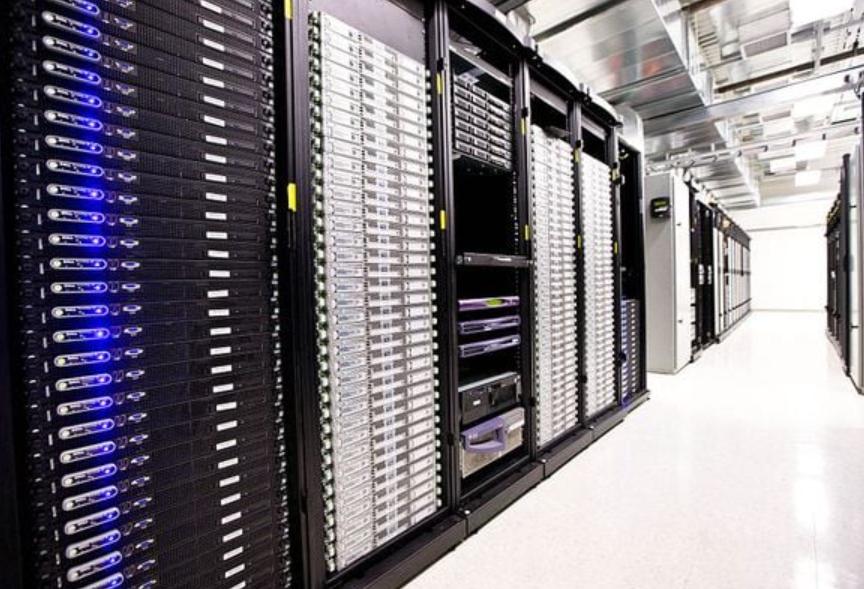Organizations of all sizes are always looking for new solutions to efficiently maintain their corporate information technology infrastructure in a world that is changing its face at the technological speed of light. One such solution is the use of colocation data centres. When a business looks for safer and more efficient ways of storing data, it is crucial to note down the significance and benefits of colocation data centres in focus on improving the overall results of the companies which operate in specific segments of the market.
What is a Colocation Data Center?
A colocation data centre is a specialized facility where businesses can lease space to house their servers and other computing hardware. They provide reliable physical platforms such as electricity, air conditioning, and networking to support enterprises’ value-added data processing without caring for their facilities. Compared to ordinary data centres, colocation centres offer services to multiple individuals and organizations; thus, they are cheap and can be expanded.
P3 These facilities aim to meet different business needs, including security measures such as security cameras, biometric entry tuning, and sealed drawers and enclosures. They also possess an extra power supply and complicated cooling systems intended to support the constant running of servers and minimize the opportunity for downtime. Lastly, colocation centres offer many connection options, so the business can have many ISPs to enhance the network.
Collocation has many benefits: it is cheaper than establishing an independent data centre; it requires significantly less capital investment. Instead, they can subscribe to the exact space and resources they need, resulting in predictable monthly costs and efficient budget management.

Key Features of Colocation Data Centers
Several characteristics are inherent to colocation data centres that serve the different needs of companies. These facilities offer adequate security through monitoring through cameras, physical access through fingerprints, and locking cabinets and cages that adequately protect the client’s hardware.
These issues are a hazard to servers’ longevity or at least to their availability: 441 They come with backup power and efficient cooling systems, which safeguard the constant running of the machines. Also, with colocation centres, customers can have multiple internet service providers as the location offers so much connectivity.
With built-in redundancy, such as backup power and numerous network routes, colocation centres deliver reliable and consistent performance. This robust infrastructure enables companies to manage their IT needs efficiently while focusing on core business activities.
Cost Efficiency and Financial Benefits
Colocation data centres offer substantial financial benefits by enabling businesses to avoid the high costs of building and maintaining private data centres. The modularity of the services provided by SP-derived space providers means that companies can simply rent the space and resources they require; this results in improved cost control and does not require large amounts of capital to be outlawed.
Laying down their facilities may be too a burden for some SMEs, and this model can significantly benefit them. However, the centres involved in colocation also offer similar services and infrastructure, decreasing operational expenses. Colocation services’ monthly fixed costs guarantee that the firms requiring them can easily afford and plan their expenditures.
Businesses also avoid expenses on power and cooling since these are facilities offered by the colocation provider and expenses on hiring human resources. Improving funds management also becomes more accessible and allows other business sectors to grow by funnelling resources into innovation and growth strategies.
Enhanced Security and Compliance
Colocation data centres implement advanced security protocols to safeguard client assets from physical and cyber threats. These include exterior surveillance/interior cameras, biometric doors, and access to high-security cabinets or cages, giving these facilities a measuring wall against intruders.
Third, colocation centres offer compliance standards with many policies and legal provisions, including HIPAA, PCI DSS, and ISO Standards, so companies have the perfect opportunity to meet many compliance standards. These compliance measures are necessary for any organization that deals with information since they go a long way in curtailing loss through theft and other vices.
Moreover, colocation providers perform security audits and assessments to qualify and solve potential threats. Many use professionals to oversee security systems and identify concerns to respond to them before they become significant issues. Other safeguards that help prevent the destruction of hardware involve using sophisticated firefighting mechanisms and administering the physical environment where the hardware is placed.
Because colocation centres house the infrastructure of many organizations, they have active firewall protection, intrusion detection systems and encryption technology to offer protection from cyber criminals. They also offer secured and encrypted communications to materials exchange that support the security and reliability of information between the data centre and the clients’ sites.
Through adopting these elaborate security and compliance strategies, representatives envision an impressive improvement of their general security infrastructure to avoid organizational costs associated with crafty securities threats.
Improved Network Reliability and Performance
Colocation data centres offer superior network reliability and performance by providing access to high-speed internet connections and multiple carrier options. This ensures that the business feeds its application and services with low latency and high data transfer rates, hence the sustainability. Reliability and communication efficiency displayed by multiple ISPs imply that the firm can obtain the services offered by the best ISPs, thus indicating high efficiency and low disruption.
Other redundant features include this backup power and the various network routes to ensure continued reliable and efficient network operations. Utilizing these enhanced connectivity and redundancy features improves the general working of different business organizations as their significant frameworks can always be available and responsive. A robust network support framework facilitates business processes effectively by enabling every business to continue running independently and deliver a better user experience.
Scalability and Flexibility for Growing Businesses
Colocation data centres enable business organizations to lease space and resources to expand their computing resources to meet business needs. Distinct from conventional data centres, colocation centres are a more elastic model: it is possible to add or remove servers and other hardware easily without facing problems with logistics.
This is important in fast-growing businesses where the demand may be unpredictable and change frequently to warrant a change of pace. By using colocation services, companies can access additional space, power, and connectivity as needed without the long lead times associated with building out their facilities. This scalability ensures that IT resources align seamlessly with business growth and operational requirements.
Whether a company is launching new services, entering new markets, or experiencing seasonal spikes in demand, colocation data centres can accommodate these changes efficiently.
Also, colocation centres allow companies to have the location to implement new technologies and upgrade skill systems with the most negligible impact. Opportunities to implement such innovations as cloud, virtualization and edge computing technologies in colocation infrastructure help companies remain innovative.
This flexibility supports operational efficiency and enables businesses to allocate capital more strategically. Instead of investing heavily in building and maintaining their own data centres, companies can leverage the shared infrastructure of colocation facilities to meet their needs on demand. It optimizes resource use, and budgeting becomes more manageable, enabling organizations to allocate the money to other vital issues, including research, marketing, or new product lines.
Disaster Recovery and Business Continuity
Colocation data centres are significant to assert business continuity, especially during unanticipated turns. They have all the disaster recovery plans, including backup generators and other power options that will support the operations of various systems when there is a power failure. There are a variety of off-site storage facilities that could be used to store important data, which can be very helpful in case essential data gets lost.
These centres also provide a geographically diverse location that can be used to facilitate disaster recovery plans by spreading the structure geographically. Regional distribution also ensures the company knows the risks of geographic disasters such as natural calamities.
Incorporating the reliability of the data centres, IRS, and numerous recovery services offered within colocation centres, enterprise continuity can be achieved, and business operations can be restored in case of a mishap. This capability is necessary for preventing outages and preserving the confidentiality, accuracy and usability of critical information and applications.
Strategic Focus on Core Business Operations
Outsourcing IT infrastructure management to colocation data centres allows businesses to refocus their resources on strategic initiatives and core activities. This change helps firms to focus on ideas, services, and value, together with adjusting strategies for growth ahead of time before data centres’ distractions hold them back.
This way, companies can benefit from the increased technical know-how, greater physical security and other lower-level details that colocation providers can provide, often with little more than a phone call or meeting, which allows the company to focus its efforts and money on other segments of their business.
Colocation centres are designed to handle the complex technical requirements of IT infrastructure, including power, cooling, and security. This means businesses can avoid the day-to-day challenges and expenses of managing these elements in-house. With the colocation provider caring for the infrastructure, companies can leverage technology to improve business processes, develop new products or services, and respond more agilely to market demands.
Thirdly, colocation data centres have the advantage of adding new technologies and, or expanding resources in line with the business needs, as covered above. This flexibility allows IT infrastructure to scale in a way that aligns with the growth of the business without putting significant capital investments behind infrastructure upfront or long wait times to meet business demands. Short W is effective when a company needs to introduce new initiatives quickly within an industry and maintain a competitive advantage.
These colocation centres also offer reliability and security, which consequently helps create IT stability that will allow little to no disturbances for business. This stability means that organizations are assured that their essential IT systems are in safe hands. At the same time, they attend to other organizational issues that they set as their goals and missions to achieve. The benefits businesses derive from outsourcing to colocation data centres include improved operational efficiency and focus on core business strategies that lead to long-term business success.



